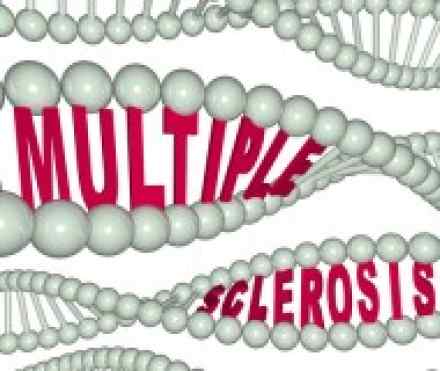-
Numbness or weakness in one or more limbs, which typically occurs on one side of your body at a time or the bottom half of your body
-
Partial or complete loss of vision, usually in one eye at a time, often with pain during eye movement (optic neuritis)
-
Double vision or blurring of vision
-
Tingling or pain in parts of your body
-
Electric-shock sensations that occur with certain head movements
-
Tremor, lack of coordination or unsteady gait
-
Fatigue
-
Dizziness
Most people with Multiple Sclerosis, particularly in the beginning stages of the disease, experience relapses of symptoms, which are followed by periods of complete or partial remission. Signs and symptoms of Multiple Sclerosis often are triggered or worsened by an increase in body temperature.
Causes
Multiple Sclerosis is an autoimmune disease, where the body's immune system attacks its own tissues. In Multiple Sclerosis, this process destroys myelin — the fatty substance that coats and protects nerve fibers in the brain and spinal cord.
How do you treat it?
Like any disease, even if there is no cure, there is almost always something you can do to manage it and take control. There are three main areas involved in the treatment of any disease:
For information on medicines and therapies relevant to Multiple Sclerosis, make an appointment at Lynch's Pharmacy, Broadale, Douglas, Cork on 021-4366923.
Learn all about the drugs used to treat the disease and any complementary medicines or therapies proven to help. Equip yourself with the tools to manage the condition and not be managed by it.
How do you live with it?
Certain adjustments may be needed to get on with your life, and often, some simple tips and advice can go a long way to making these changes.
When you come to a Lynch's Pharmacy Clinic, we give you all the necessary information available to make your life more manageable and allow you to better live with your condition.
References
Multiple sclerosis- http://en.wikipedia.org/wiki/Multiple_sclerosis
http://www.webmd.com/multiple-sclerosis/guide/multiple-sclerosis-symptoms
http://www.patient.co.uk/doctor/multiple-sclerosis






